My Musical Diary for Piano
Hello! How are you? Come and find out more about what I have been up to!
This is a new page which I decided to add to my webpage.I thought it would be nice to write about some of my thoughts on the music I am playing and studying.
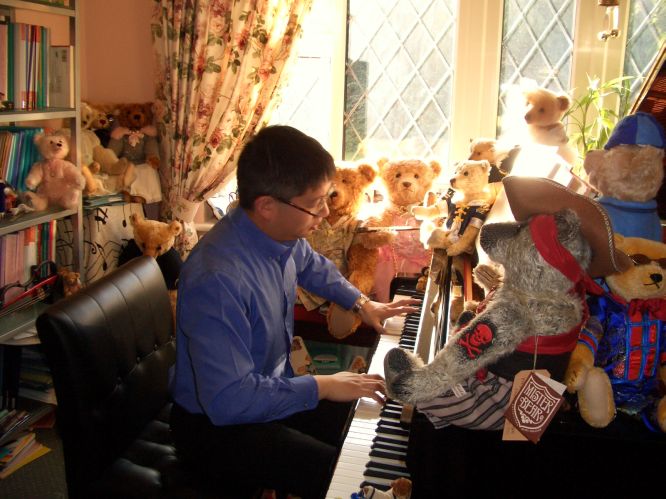
August 2006 to September 2006
What I am currently playing:
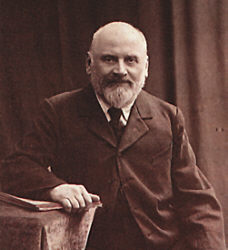
Milly Balakiriev/ Balakirev: Sonata in B flat minor. I simply adore this work, especially movements I, III and IV. Not so keen on the Mazurka yet, but I am sure it will grow on me. I find the first movement simply divine and mellifluous. Its form and structure are unusual as it is in sonata form with the first group being fugal modulating to the second group which is not fugal but has a tender melody. The Development section opens with the first group but does not appear to develop the second group.This leads onto a cadenza before the recapitulation. The last movement is the most dramatic but ends quietly which I find so unexpected for such a large work. The Slow movement (III) is very beautiful and lyrical.
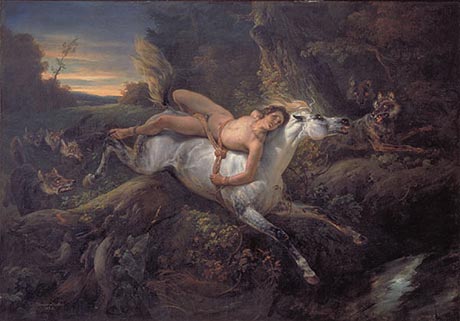
Franz Liszt: Mazeppa (usually when i play this (1st, 2nd and 3rd versions of this work), i dont think I have enough fingers, or I think that my fingers are going to drop off any minute!!!) but i love it, it's so dramatic and with flare! Smoke coming out of my ears! The piece is based upon the literary character Mazeppa (Byron and Hugo), who was a page to the Polish King John Casimir. Having been caught having a fling with a nobleman's wife, the nobleman tied him naked to a horse and sent him off! Eventually the horse stopped in the Ukraine. The Cossacks rescued Mazeppa and he fought in wars against the Tartars. He became a hero and the Tsar made him Prince of the Ukraine. Liszt wrote at the end of the etude “il tombe enfin!…et se releve Roi” (He finally dies but rises a King) which is a quote from Victor Hugo's poem on Mazeppa. Liszt wrote 12 etudes Op 1 when he was a teenager. He later revised these to become '12 Grande Etudes' and finally these evolved into the 12 Etudes Transcendental. Mazeppa is No 4 of each set. However, before the final version Liszt revised Grande Etude no 4 and entitled the work 'Mazeppa'. The final version (Etude Transcendante no 4) is what is usually played in concert now. It is fascinating to see Liszt's creative process through these 4 versions with each subsequent version adding more technical virtuosity and difficulties;
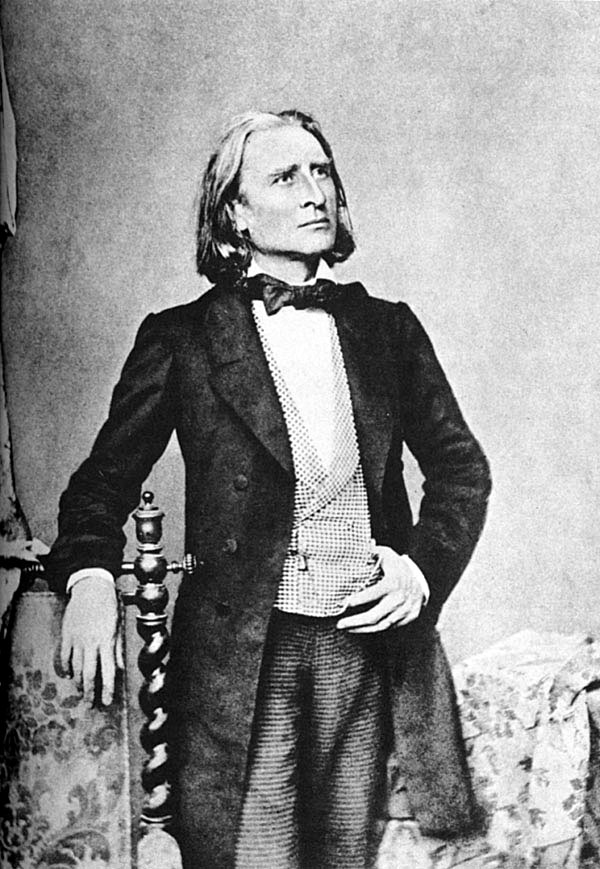
Franz Liszt: Fantasy on themes from Wagner's Rienzi - Bombastic and grand noble themes from Wagner's opera;
Franz Liszt: Legende Nos 1 St Francis of Assisi preaching/ sermon to the birds & Legende No 2 St Francois of Paule walking on the waves (These works are simply thrilling and highly programmatic. I prefer the second Legende to the first overall, the opening prayer and choir and the monsterous waves of the sea, the miricale of the saint walking on the water, the church bells ringing on his arrival - all so exciting , but the first legende is not without merit, it is quite nice with the tremolos sounding like the birds fluttering);
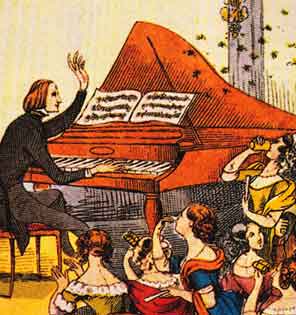
Franz Liszt: The concert arrangement of Handel's Sarabande and Chaconne from Almira. (This tickles me pink when I play this, i think Handel would be pulling off his wig and drowning in his watermusic! Liszt takes the fairly simple sarabande and transforms it into a romanticised work full of sentiment and pianistic effects completely out of the original Baroque context - but it is enjoyable to play and is another example of 'Romantic Baroque' music interpretation similar to how Tartini's Devil's Trill sonata is interpreted by many violinists including Mutter and Rosand).

Moszkowski: Caprice Espagnol: This is a fun piece with spanish flare in which right hand does most of the work. Lots of repeated notes for finger staccato. The degree of difficulty is on a par with his Op 72 etudes, but the music is much simplier than Liszt's Rhapsodie Espagnole and Busoni's arrangement of the Liszt. I wish more of Moszkowski's music was played more often in concerts. His piano concerto in E major is hardly ever played, and he wrote a fine corpus of music. Unfortunately, not all of it is available by the standard publishing houses. I think many pianist's think he only wrote 'sparks', Op 72 etudes and the Spanish Dances. Shirmer and Associated Board editions do publish some of his music. For the rarer pieces, I have had to resort to archives, internet and Musica Obscura Edition (USA). Seta Tanyel has recorded 3 cds of his music, and Horowitz always included Etincelles in his programme
Works I am replaying for enjoyment:
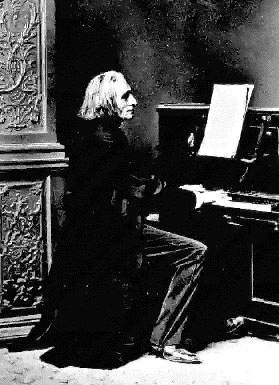
Liszt's Sposalizio (marriage of the virgin). Again I love this work; the falling thirds sound so much like church bells (I feel that the whole piece has church bells in it!), and the key of E major has such religious connotations. It is interesting that I understand that it was Raphael's painting of showing the wedding of the virgin Mary and Joseph that was Liszt's inspiration for this work. There are some really tender moments, and when the octave passages start I imagine this as the church bells ringing to celebrate the marriage.
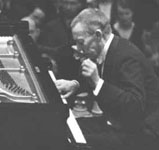
Re looking at Rachmaninov: 'Elegy'Op 3 No. 1 from Morceaux de Fantaisie. A deeply personal work in the scrumptious key of E flat minor. Highly emotionally charged and romantic in style and an early piece of his writing. The music is very atmospheric and sad. The middle section has a really lyrical lefthand melody for the cello whilst the right hand ripples away. I find the ending a little bit of a surprise as it ends with a solitary declamation which to me is rather unexpected. I learnt this piece years ago, and was first attracted to it when I heard the composer's own recording of it (Rachmaninov's Ampico recording).
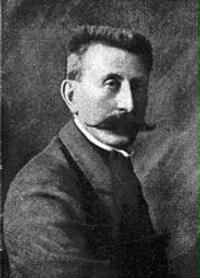
Moszkowski: Etudes. There are lots of them not just the renown op 72 set. What I have worked through and looked at are as follows:
-2 Etudes in thirds. No 1 in A flat major (mainly thirds and sixths); No 2 in G minor. (Right hand does all the work);
-4 Exercises in double stops. These are quite useful, both hands have various intervals and chords.
-Op 18 No 3 in G major. This study is for agility in the right hand.
-Concert Etudes Op 24 No 1 is in G flat major (left hand is mainly arpeggios and right hand has the melody-has some tricky moments); No 2 in C sharp minor (fairly chordal in style, a few scale and melissimatic passages; No 3 in C major (more homophonic in both hands than the others).
-Op 32 No 2 in D major. The descending righthand double stops is similarly employed in one of the C major etudes of Op 72.
-Op 34 No 2 in C major. More double stops in the right hand and arpeggios later in the left hand.
-Op 67 No 2 in G minor. Repeated note finger staccato study. Ends with a Tierce de Picardie.
-Op 70 Etude Caprice in D minor. Mainly a right hand study, reminds me of some of Chopin and Liszt Etudes. Ends with a Tierce de Picardie.
-Op 75 No 2 in G minor. An etude for finger dexterity. Both hands are busy! The study ends in G major. I quite like this one.
-Op 81 No 3 Legato Etude in D flat major. This mainly concerns legato and changing chords. Some tricky moments! Needs real finger legato practise where no pedal is employed!
-Op 85 No 3 Scherzo Etude in E minor. mainly thirds, sixths and octaves.
-Op 92 are 12 etudes for the left hand, and quite tuneful and fun compared to the Berens Studies. Left hand needs to be fairly supple and quick to jump or stretch.
October 2006:
Great Excitement! I am working through tonnes of Russian music at the moment. I really like late Romantic Russian piano music. Lots of rare music by Liapunov, Arensky, Mussorgsky, Anton Rubinstein, Cesar Cui, Blumenfeld and Balakiriev. The composers themselves are very interesting.
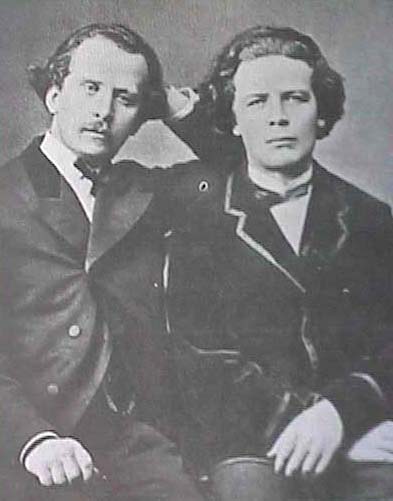
Anton Rubinstein was a founder of the St Petersburg Conservatory of Music and his brother Nicholai founded the Moscow Conservatory of music (pictured in the photo above), both with the help of a Grand Duchess. Nicholai Rubinstein wrote a book an the art of pedaling. It is an interesting read from a historial perspective but it is a little outdated. Anton Rubinstein taught Josef Hofmann (incidentally Hoffman wrote a few piano works as well but these are less well known (available from USA publisher Musica Obscura)).
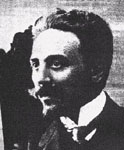
Felix Blumenfeld was the uncle of the great Russian piano teacher Heinrich Neuhaus, who taught Richter and Gilels. As you can imagine, lots of exciting but difficult etudes and pieces to read through at the moment but a lifetime's work needed! How exciting!A lot of this music is very hard obtain, but I have managed to amass quite a bit of it from various sources including the internet.
What I have found so far:
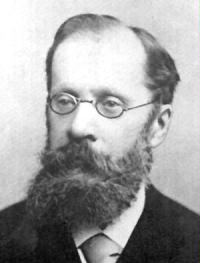
The piano works of Cui appear to be fairly easy and not too difficult compared with Blumenfeld, Balakiriev and Liapunov. The 25 Preludes are most accessible for pianists who are not too advanced. The harder preludes are in the middle of the set.
Liapunov's (also Lyapunov) piano music is superduper. I really like it. His style and writing is in the spirit of Liszt. Of the 3 works I know of written for piano and orchestra, the Rhapsody on Ukranian Folksongs/ Themes is more facile to play.
-The hardest works are his 12 Etudes Transcendante which completed the harmonic cycle that Liszt's 12 Transendental Etudes began. I am currently working on Lesginka of Op 11 (I understand that it was a favourite performance work of Clara Haskell). It is a traditional dance from the Caucauses, and Liapunov's is entitled 'in the style of Balakirev'. Much of the writing and technical difficulties do remind me of Balakirev's Islamey. I love this exciting work very much and I prefer it over Rubinstein's Lesginka dance.
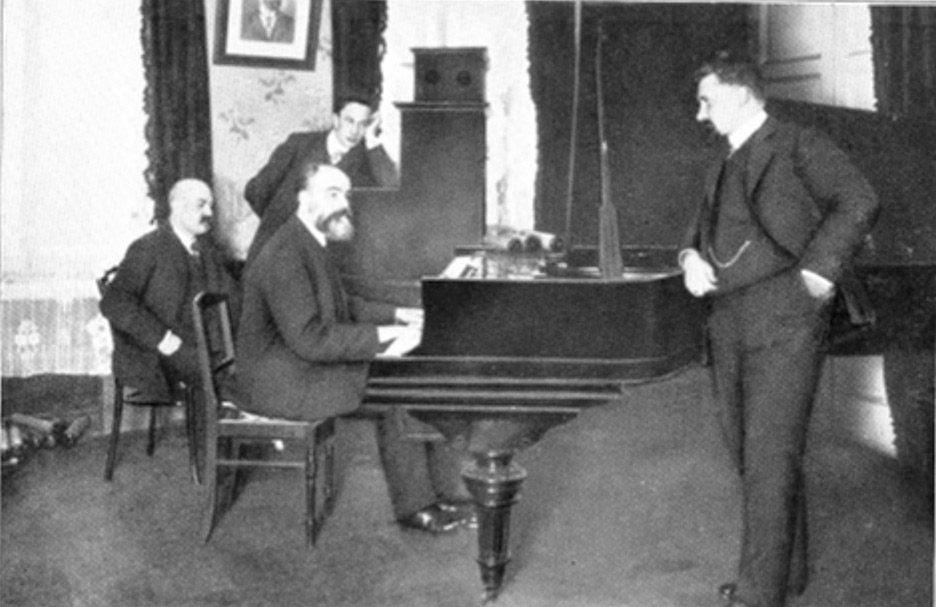
This photo is Liapunov at the piano.
-Op 1 is a set of 3 pieces. Etude, Intermezzo and a Valse. I would say that the etude is the hardest of these three, followed by the Intermezzo.
-I simply adore the Op 3 Reverie du soir and cannot stop myself from playing it everyday. Lovely writing and lovely harmonies. It is similar to an chopin nocturne yet has elements of Balakirev's style (he was Balakirev's student) in the latter half of the piece.
-Of the Op 6 Preludes, I like them all except no 2.
-Op 40 is a set of 3 pieces. Prelude, Elegy and Humoresque. The last piece is the hardest of the set. These pieces are of moderate difficulty and are very accessible for the player who is less advanced.
-The Op 46 Barcarolle is quite nice and gentle. Interesting to compare it with those written by Rubinstein.
-Op 55 is the Grande Polonaise de Concert. Interesting to play this and compare it to those polonaises of Chopin.
-Op 57 is a set of 3 pieces. The little fugue in C sharp minor is quite nice. The Spring song gives off nice and warm vibs. Unfortunately I do not have the third piece in the set. I understand this to be known as 'At the fountain'.
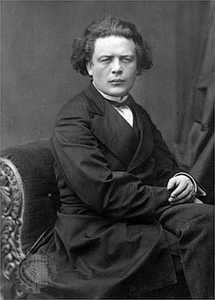
The music of Anton Rubinstein is interesting. It is proported that he was the only equal of Liszt in performance and many contemporary pianists have spoken in interviews about his performance and playing style. He certainly looks like someone who would be very heart on sleeve. I have read his autobiography which does set the scene in Tsarist Russia. It is quite interesting what Josef Hofmann has to say about his lessons with Rubinstein, if you are interested you should read his book Piano Playing with Questions Answered (Dover: Hofmann, J). I want to start learning the 'Yankee Doodle' variations that he wrote, they would certainly liven up a recital programme. Rubinstein wrote a fair number of etudes (six etudes Op 23, Op 81 No 1, Op 93 No 5, and 2 concert etudes) which I have yet to go through.
-For the less advanced player I would recommend the 6 Barcarolles; the Mazurka Op 75 No 10; Valse Op 14 No 4; Impromptu Op 16;
-The first sonata in e minor is quite manageable to play but I thought it was lacking in melody. The Andante Largamente (II) was more melodic than the opening movement. This is followed by a Scherzo in ternary form. The finale movement does have some lyrical movements.
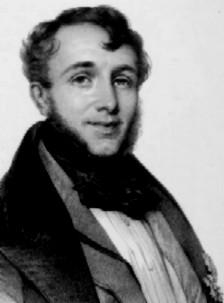
I relooked at a rare piece by Frederick Kalkbrenner, the 19th century pianist and teacher to whom Chopin dedicated his e minor concerto to. The piece is called 'Le reve' Grande Fantaisie Op 113 and appears to be conceived as a work for piano and orchestra but is written for piano score only. Certainly their are tutti and solo and instrumental cues. His music certainly is pomp and bombastic, and is written with much dramatic flare with lots of dramatic effects and octaves scales and arppegios. However his music seems incomparable with Chopin or Liszt's writing, they certain have more melodic interest and capacity. A more digestable piece is to be found in the 'La Femme du Marin' Pensee fugitives. This is very atmospheric with typical right hand melody and arpeggio accompaniment in the left hand. Other than a handful of pieces published by Elibron his music is out of print. It seems ironic that Kalkbrenner is said to have told Chopin that he could have done with a few lessons from him in view of the fact that Chopin's music had stood the test of time.

Moszkowski: Suite Op 50. This work reminds me of the suite by Eugen D'Albert (Pupil of Liszt) which is quite a nice little recital treat. Moszkowski's opening movement is similar to an opening Baroque prelude in binary form but with a thicker octave texture. The second movement is an Air in e minor which is charming. The Capriccio in C follows which is more motivic and staccato contrasting with the preceding Air. The last movement is a 'presto alla Giga' but is my least favourite movement of the suite although it does have a lighter texture. Overall it is quite a nice suite to include in a recital.
Andrew Lloyd Weber: I don't know about you, but I do really enjoy playing through many of the songs from his musicals which have been transcribed for piano. I really like the numbers from Phantom of the Opera, Joseph and Cats. I enjoy the vocal lines as well as the harmonies.

Chopin Op 25 Etudes. I really like No 1 in A flat Major ('aeolian harp'), gives me such a warm sunny feeling. No 2 can be tricky. I think you have to focus your will on the right hand triplet quavers as your pulse and fit the left hand in.
Relooking at Chopin Etude Op 10 No 1. I really enjoy this etude dedicated to Franz Liszt. I think the trick is to ensure the right hand thumb/ little pinky move very quickly using an open and close movement like a crab claw, supported by the horizontal movement of the right hand fore arm. Slava Richter played it so fast!!!!!I think the op 10 etudes are harder. The easier set are the Trois Etudes Nouvelles. I prefer the first two of the set, the first being so expressive with a sense of turmoil; the second such happy harmonies
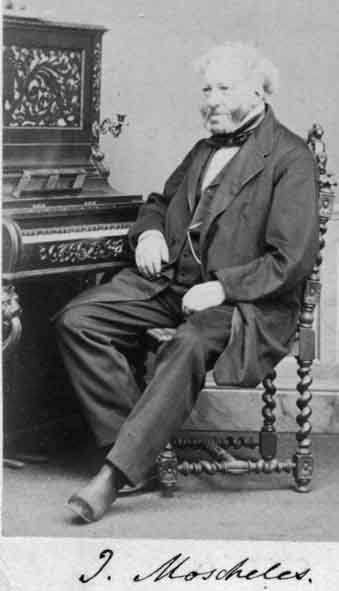
Relooking at the Moscheles Op 70 'studies for perfection'. Chopin used these etudes along with Clementi's Preludes and Exercises in his teaching. I also like the Hummel Etudes Op 125 which are less well known.
November 2006
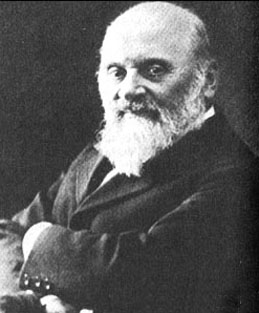
Still working on the Balakirev sonata! I'm being very slow at learning this at the moment :-(
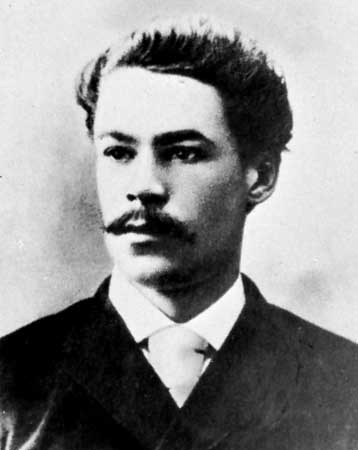
Anton Arensky: I had a look at his Op 1 pieces. This is a set of 6 pieces (Fremdes Lied, widerspruch, March, Sorglosigkeit, Gestandniss, Sehnsucht) which is very accessible to pianist of an intermediate level.
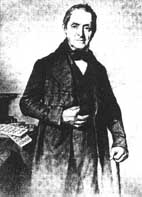
Relooking at Cramer's 84 etudes, its been years since i played these. They are really quite tuneful and the first 30 or so studies are not difficult, the rest of the studies have increasing technical demands. I think they make a nice alternative to Clementi's Gradus Ad Parnassum. It is a shame that other than the etudes, not much of his other works are in print or available. I would dearly love to learn one of his sonatas or concertos. I have a recording of 7 of his concertos by Howard Shelley. I like them. I wonder where he got the music from. I did enquire with the French publishers Billaudot as they listed them on the back of my Alkan music, but alas, they are out of print! I have seen something of his on Elibron, but they take ages and I have had little success in ordering from them. Other than the usual 84 studies, I do have two other volumes of shorter etudes published by Cramer publications, London.
Not so productive practise this month, preparing my students for competition.
December 2006
A wonderful weekend of music by Mily Balakirev! Toccata, Nocturnes and the Reverie - dreamy dreamy dreamy. Also worked on the 3rd and 4th movements of the Sonata
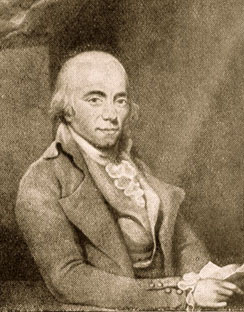
Back to technique again: Clementi's Gradus ad Parnassum and Czerny op 299 and 740: so good to do it. I think you need to keep in shape regularly, and i really enjoy these works as well as the usual scales and arpeggios and Liszt Technical exercises for warm ups!
More Chopin op 10 and op 25 - simply scrummy!

Relooking at Hummel Etudes Op 125.
January 2007
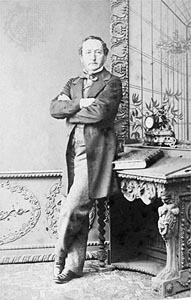
Great excitement! My Thalberg music (3 volumes) from Elibron has arrived!
Sigismond Thalberg Etudes op 26, Fantasia on Rossini's 'Moses', and Fantasia on Meyerbeer's 'Les Hugenots'. Both Fantasias are very enjoyable BUT long, particularly the Les Hugenots, but some very well written piano music. Some large stretches in the right hand though in 'Les Hugenots', I can just about reach them. I like Thalberg's music very much. In his day, he was said to be the only rival of Liszt on stage
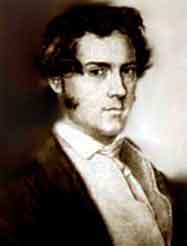
JF Burgmuller: Souvenir de Belini Op 27. Tuneful but an easy set of pieces of melodies from Bellini's operas. Very rare to find.
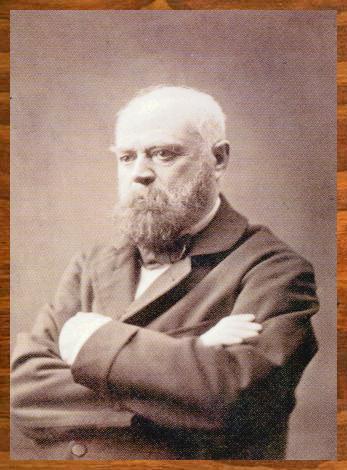
Adolphe von Henselt: Petite Valse in F - fairly straight forward; Pensee Fugitive in F minor and Rhapsodie in F minor- great stuff! Must have for my next recital. I love these Romantic works, shame so much of it is out of print now :-( I want more!!!
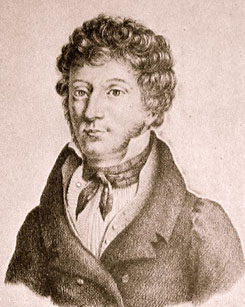
John Field: Piano concerto no 1 in E flat for piano solo. Originally written to piano and orchestra, this version is conceived for piano solo. It may have been arranged by Field's pupil Dubuque.
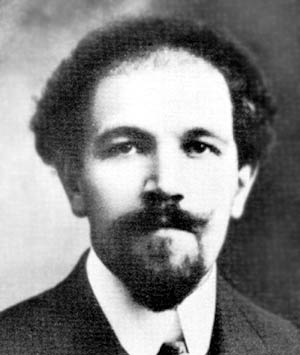
Nicholas Medtner: Fairy Tales and Sonata Tragica. I first heard Mednter's music when I listen to my teacher's recording of the violin sonatas she made on Chandos. Then whilst at Oxford University, my friend Chisato Kusunoki was mad about Medtner then, and recently she played me the Sonata-Ballada in F sharp which I think she prepared for the Dudley International Competition in 2005. I have found his music to be too much musical idea sometimes
A very productive weekend playing the following rare salon pieces:
Andre Wormser: Reverie
Raff: Romance Op 2 no 2. Lovely music. I have played his Cavatina for violin. I have ordered more music by Raff from Elibron, let's hope it comes very soon! I am sure that I read that Liszt's pupils used to play some of Raff's music in his masterclasses.
Richard Strauss: Reverie. Unusual! I don't know any of Strauss' music save for the violin sonata and the main orchestral works. I have played some of the Burleske for piano and orchestra though.
Fr. Thome: Simple Aveu. This is a simple lovely work to focus on singing out the melody and listening to the harmonies of the accompaniment.
Chas D. Blake: Waves of the Ocean. This is typical salon piece by Charles Dupee Blake (1847-1903).I think he was an American pianist and composer.
A. Borodin: Nocturne from Petite Suite
Louis Gottschalk: Dying Poet. He wrote lots of 'American' sounding music.
JN Hummel: An Alexis. I wonder what Hummel meant by 'An Alexis'. I thought Alexis was a Greek Comic poet. I don't see that the music is jokey either. Hmmm...
Alexander Ilyinsky: Cradle Song from the suite op.13 'Noure and Anitra'. A lovely piece by the Russian composer who studied with Kullak.
Adolf Jensen: Romance
Albert Jungmann: Longing for Home. He also composed a piece called Will o' the Wisp
Halfdan Kjerulf: Berceuse op 12 no 5
Gustav Lange: Thine Own and Flower song by this German pianist
Ignace Leybach: 5th Nocturne. A very lovely piece and really the only piece which he is now known for. Leybach was a student of Kalkbrenner and Chopin. His music is hard to come by. However, all is not lost as I have seen that an Australian publisher called Hammer & Tongs/ Saraband publish some of his music, and yes I will be contacting them!
Franz Liszt: Consolation no 5. This isn't a hard piece technically, but needs to be played lyrically with much thought.
Felix Mendelssohn: Consolation in E major reminds me of the piece/ song without words also known as Confidence in the same key which I used to like to play
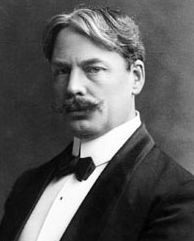
Edward MacDowell: Scotch Poem. I remember learning this piece a very long time ago when I was 12. I like the darkness of it then the sudden beautiful scottish melody. This contrast remnds me of the opening to Max Bruch's Scottish Fantasy in E flat minor. I really love his music, especially one of his Modern Suites and the op 39 studies. I must learn some more of MacDowell's music. I do have his piano concerto, but I have not played it yet. Again, it is a shame that much of his music is neglected.
Theodore Michaelis: Blacksmith in the woods. This is a very unusual and programmatic piece by this lesser known 19th century American composer. There are words in the score indicating what the music represents
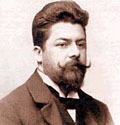
Edward Poldini: Poupee Valsante and In the wood.
Brindley Richards: Warblings at Eve.
Edward Schutt: En Bercant and Reverie
Ludwig Schytte: Berceuse op26 no 7
F. Youferoff: Elegie. This seems to be the only piece for which Youferoff is famed.
R Wagner: Eine Sonate für das Album von Frau MW (WWV 85), Albumleaf in E flat. This sonata is reminds me of an opera aria for a tenor. It is very orchestral in conception. The Albumleaf is simply delightful and heart warming. I first heard it as an arrangement for violin and piano recorded by my teacher Lydia Mordkovitch on Chandos records.
February 2007
Back to Chopin Etudes op 10 and op 25 - loving them! Not only studies in the technical sense, but great music which i simply adore! Loving the C minor arpeggio study very much at the moment.
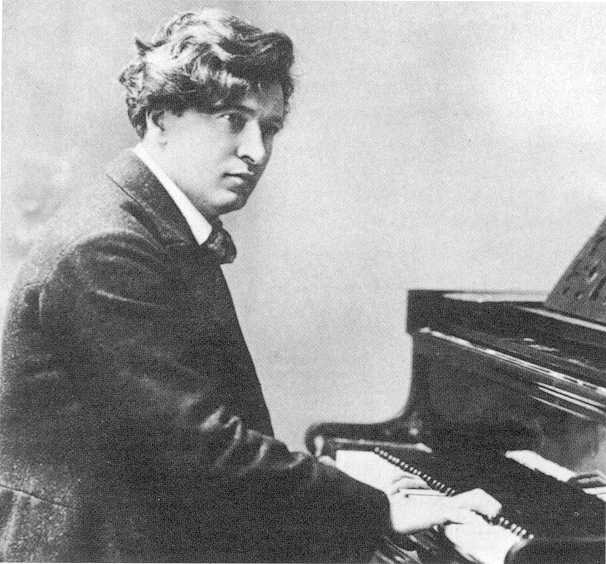
Ferruccio Busoni: Fantasia in modo antico (1896) from Stucke op 33B No 4. An interesting work in 3/2 time with fugal elements. The harmonic content is not so strange or dissonant as the 3rd sonatina as discussed below.
Ferruccio Busoni: Sonatina no 3 'ad usum infantis Madeline M. Americanae' (sonatina for the use of the American Princess Madeline M). An unusual work in 5 movements (i. Molto tranquillo; ii. Andantino melancolico; iii. Vivace (alla marcia); iv. Molto tranquillo; v. Polonaise). His music is a mixture of dissonance and strange harmonies and is mainly contrapuntal in nature. I think this work was written in 1916. An insight into his thoughts on compostion can be seen from his 'Sketch of a New Aesthetic of Music'.
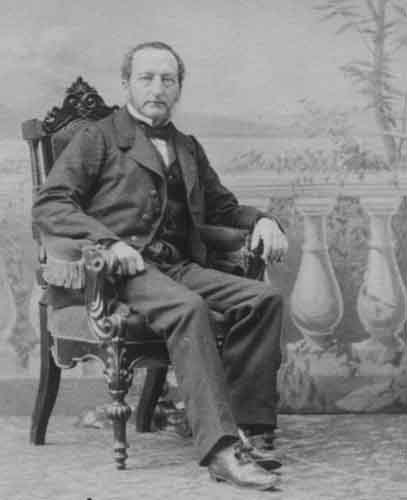
Sigismond Thalberg:Fantasia on Rossini's 'Moses' and Fantasia on Meyerbeer's 'Les Hugenots'. The latter is a very long work but has some very beautiful moments. His style seems to always be the same: melody and accompaniment, but his works cannot compare to those of his adversary Franz Liszt. They both are virtuoso is their own ways
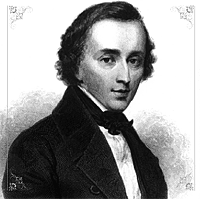
Chopin: Nocturne in C sharp minor op 27 no 1. A beautiful work.
Chopin: Nocturne op 48 no 1 and 2. No 1 is an old friend, no 2 (F sharp minor) so different character to no 1 and full of passion and dispair. The gentle opening introduction is repeated again after the initial subject which is so vocal and lyrical in nature. I feel that No 1 in C minor, is far more dramatic in character and nature and is the hard of the two technically, especially the final section of the first nocturne which is on par with a ballade.
Chopin: Nocturne in C minor (Posthumous). This is actually a late work written when Chopin was in failing health although it is simply not up to his usual writing. It reads more like an early attempt at nocturne; it is harmonically less adventurous and lacks invention and rich melody compared to the other corpus of nocturnes, and indeed, when first published by L Bronarski in Paris in 1930, it was thought to be. However, scholarly research into the paper used has proved otherwise. The melodic line is full of melissmatic passages. Interesting to play thorough though.
Nicholai Kapustin: a selection from 8 Concert Etudes op 40, 24 Preludes op 53, Toccatina op 36, 10 Bagatelles Op 59. Very interesting contemporary music with fusions of jazz. Nice rhythms too.
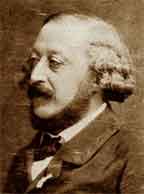
Stephen Heller: Fantasia-Etude on Themes from 'Robin des bois' by CM Weber Op 127. Most of Heller's music is unknown today other than his etudes Opera 45, 46, 47 and 125. I quite like this fantasy and it is full of drama. Shame that it is hardly known now.
Great Excitement, the Hammer & Tongs Reproductions music arrived from Jacks Pipes & Tongs yesterday having been sent from Australia's Hammer & Tongs/ Saraband Music:
J. Leybach: Ballade op 19. The introduction is full of dynamic and registeral contrasts, initially the piece opens in F minor (Introduction - Allegretto) but the piece is in the key of A flat major as confirmed by the perfect cadence into the moderato section. A section entitled Ballata andante con sentimento follows and the music increases in tempo with the addition of the arpeggios in the right hand (leggiero e ben marcato il canto). After brief spell in F minor and a change in character (piu mosso Pastorale), the music returns to the leggiero e ben marcato il canto in the key of A flat and ends with material from the opening of the Ballata section. Another pretty salon piece for a soiree!
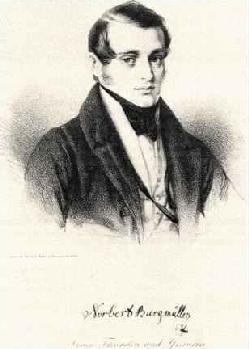
JFN Burgmuller: Grande Valse Brillante sur l'opera 'La Promise' de L. Clapisson. This piece is in A flat major and consists of a slow introduction and the waltz itself is an allegro. This is not a very difficult piece and is a typical charming salon piece. I do not know of Clapisson's 'La Promise'.
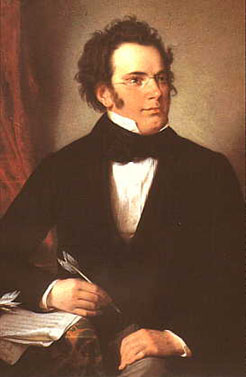
Franz Schubert: Wandrer Fantasie. Schubert's piano music is so passionate and lyrical especially the impromptus and sonatas, and this Fantasie is one of my favourite works of his. I worked on the first section only yesterday.
March 2007
Great excitement! The music I ordered from Elibron in January 2007 has arrived:
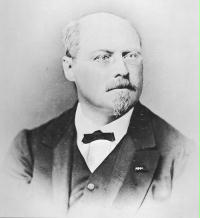
The Joachim Raff music: Suite op 69; Cachoucha-Caprice op 79; Mazurka-Caprice op 83; Etude 'Chant de l'Ondin op 84; Introduction & Allegro Scherzoso op 87; Etude op 88; Villanella op 89; Capriccio op 92; Reverie-Barcarolle 'Dans la nacelle'; Impromptu-Valse op 94; Caprice 'La Polka de la Reine' op 93; and the collection called 'Schweizerweisen' op 60. I am so pleased since much of Raff's music is unknown today. Let
Herman Johan Berens - School of Velocity op 61. This is pretty much on the same lines as Czerny, Lemoine, Duvernoy and Gurlitt.
Franz Behr - 'Favourite pieces' Album. This contains 1) Par force - Galop op 313; 2) Blanche - Polka elegante op 287/2; 3) Florina-Polka op 261/3; 4) Mes doux yeux - Reverie op 257; 5) Chant du Mai op 181; 6) Le depart des hirondelles op 198; 7) Charme de Salon op 290; 8) Douce illusion op 237/2; 9) Le mal du pays op 113; 10) Melancolie op 233. These will all be very interesting to play through. I only know and have played and taught a few pieces by Behr, such as 'Camp of the gypsies'.
More music from Elibron has arrived today!! So excited:
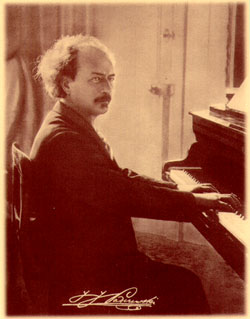
Ignace Jan Paderewski: Sonata in E flat minor

Wladislaw Zelenski: 25 preludes op 38. Interesting music, but hardly known today.
Ignaz Moscheles: Piano concerto no 2 in E flat arranged for solo piano
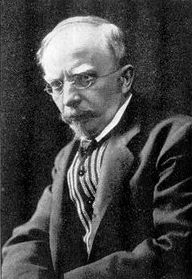
Christian Sinding: 10 piano pieces op 76. It is refreshing to play his music other than his famous 'Rustle of Spring'. The left hand piano arpeggio writing reminds me very much of Thalberg's writing; the technique of the arpeggio split between the hands, which is also a feature in some of Mendelssohn's piano works where the accompaniment arpeggiation/ broken chord texture is split between the hands with the melody in the right hand.
Christian Sinding: 6 piano pieces op 74
Henryk Pachulski: Piano Album for youth op 23
Henryk Pachulski: 12 Preludes.
Jan L Dussec & Ignace J Pleyel: Piano Method. Mainly scales and fingerings, with small exercises. The text is all in German
April 2007
A wonderful weekend of playing Jazz and easy listening music by British composer Pamela Wedgewood! All very straight forward, but utterly delightful music with such nice harmonies and melodies! A great way to start Spring!
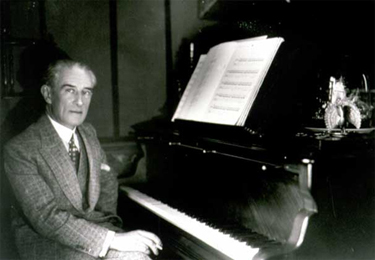
Ravel: Pavane for a dead Infanta and Menuet l'antique. Some of my favourite pieces by Ravel.
Chopin. Still back on OP 25 and op 10. Relooking at Ballade no 1 in G minor. I first studied this piece when I was 14 with Lora Dimitrova; it is such a poetic piece and so dramatic, beautiful, beautiful. I love all the ballades, especially no 1 and no 4.
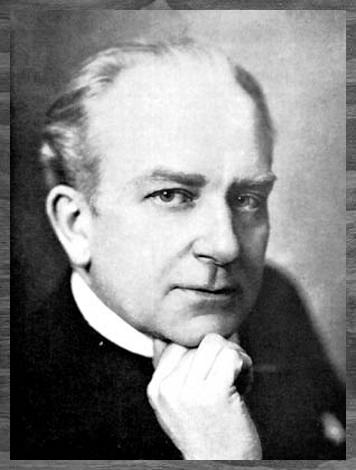
Serge Bortkiewicz: A selection from his Op 15 Etudes and the first Lamentation op 17 no 1 in D minor. Romantic music of the Russian school which reminds me of Rachmaninov's style. Very pleasing to play and listen to. Much of this Ukrainian composer's music is not part of the standard repertoire which is a shame.
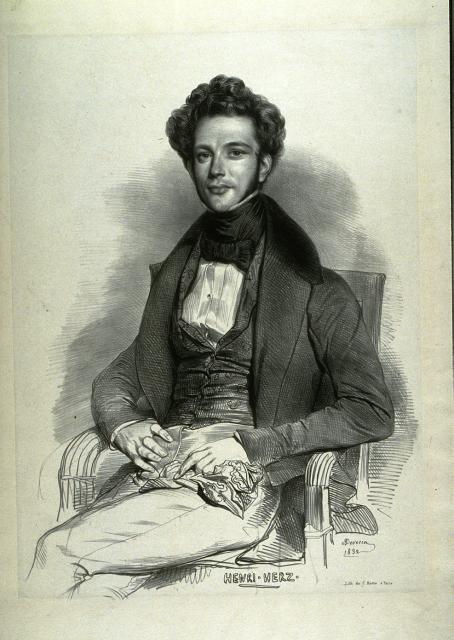
Henri Herz: Turkish Rondo in A minor. This is fun salon music, but I prefer the Turkish rondos of Mozart and Burgmuller which sing melodically better. It is a shame that he is only really known in modern playing for his scales and arpeggio tutor book. He wrote lots of variations on popular tunes and operas and I have a couple of his concerts.
Ignaz Moscheles: Piano Concerto NO 2 op 56 in E flat major.This concerto is in the brilliant style but is not as melodic as his other works for solo piano. The work has been transcribed for piano solo with the orchestral cues.
Had a look at Chopin ballade no 2. Much simplier than no 1, but and wonderful dramatic work.Will analyze this work. Very interesting that we start in the key of F major but end the work with a perfect cadence of A minor, the first bitonal piano work? I will update more when I have had more time to look at it more carefully. It certainly hints at cyclic form with the opening returning very briefly at the end.
May & June 2007

JS Bach: Partita No 2 in C minor. Along with the B flat partita this is one of my favourites of the set.
Chopin: Ballade no 2 in F. unleash the power! Reminds me so much of 'winter wind' op 25 etude. But also so poetic with the iambic/ sicilliano rhythm.
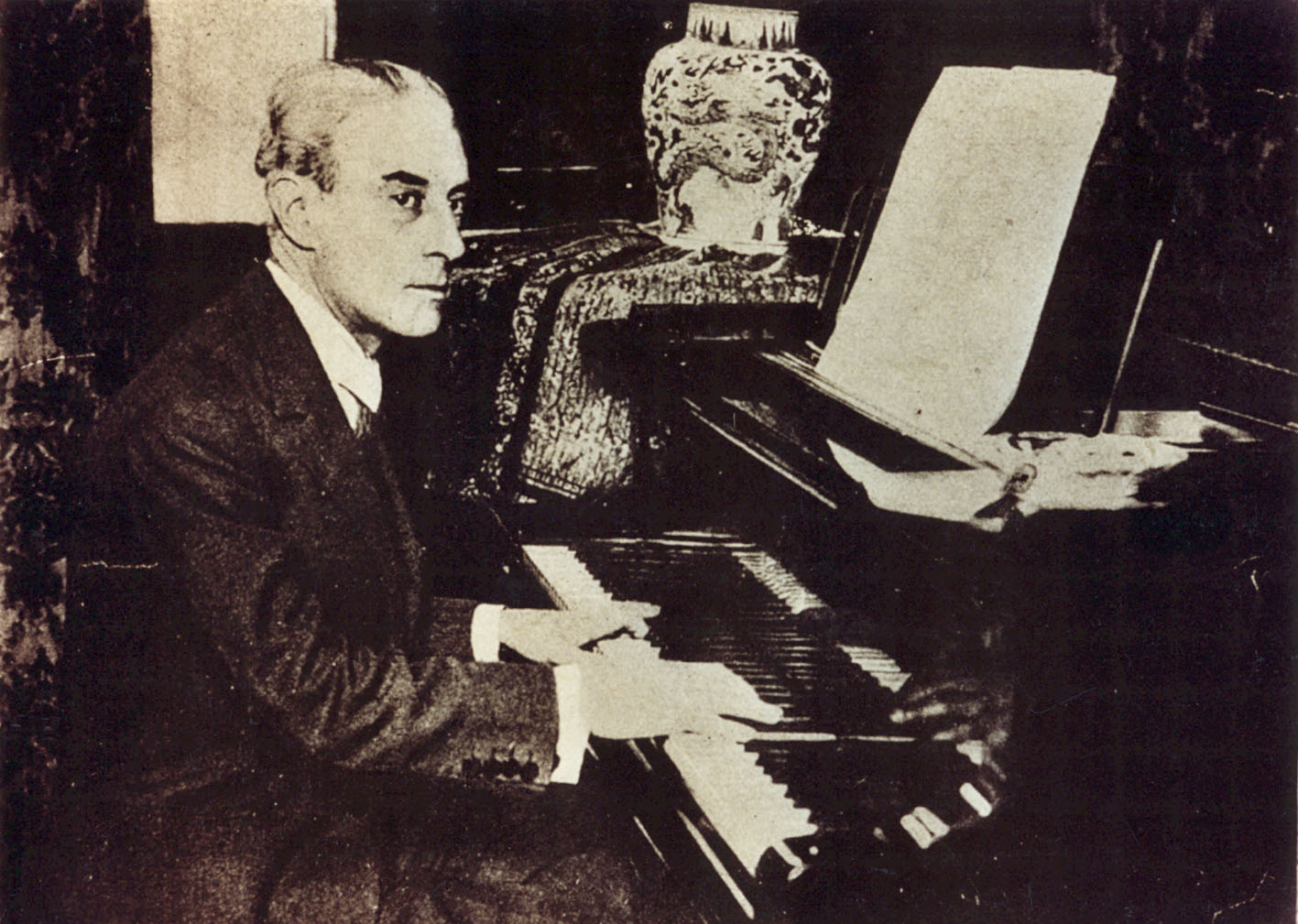
Ravel: Minuet l'antique. Lovely Ravel such scrummy sounds
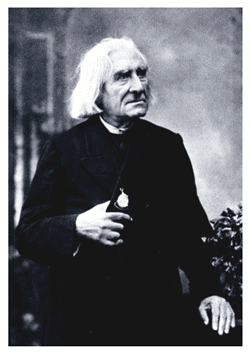
Liszt: Transcendental etude no 8 'Wilde Jagd'. Just starting to learn this. gulp!
July 2007

Muzio Clementi: Gradus Ad Parnassum Studies. The pianist's bible of technic. Good to go back to old studies
Herman Berens: Left Hand studies. Good to work and isolate the left hand once in a while.
A lovely Sunday morning of Chinese piano music! Why? I felt in the mood for it as it was the 10th anniversary of the the Hand over of Hong Kong from British rule to China. I can't believe it has been 10 years already! I was at uni at the time. What is Chinese piano music like. Very national style and most pieces are programmatic in nature and descriptive of something, but there are other pieces which aren't. Along with fellow Soviet composers, many Chinese composers/ artists had to tow the 'party line' in relation to their music and ideas.
Chinese Piano music: Liu Yang River/ Liu Yang He by Wang Jianzhong. This is a wonderful piece which is like most chinese music programmatic in nature. I read somewhere that it is actually a song and what i have is a transciption of the song. The lyrics of the song are supposedly about Chairman Mao Tse Tung's birth near the Liu Yang River. Lang Lang played this piece as an encore at the BBC Proms a few years ago. It is not as famous as the piano concerto called the 'Yellow River'/ 'Wang He', but still very nice.
Chinese Piano music: Lullaby by He Luting. This is quite nice and lilting
Chinese Piano Music: A Buffalo Boy Playing his Small Flute by He Luting. This piece is also published by Schott and under the title of 'The Young Shepherd and his little Flute'. This charming piece in ternary form was composed in November of 1934 for a competition organised by Alexander Tcherepnin at the Shanghai Conservatory. He Luting won first prize with this piece. I understand that Tcherepnin liked the piece so much that he often played it in his recital repertoire.
Chinese Piano Music: Flower Drum by Qu Wei
Chinese Piano Music: Overture - Small Stream by Zhu Gongyi, I hear the water!!!
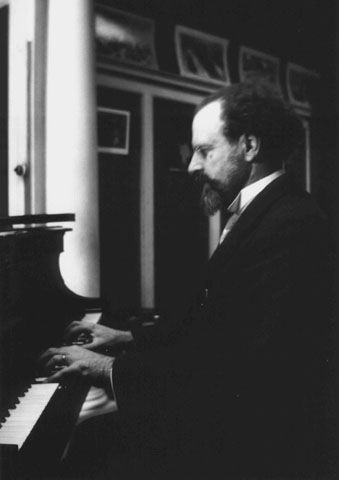
Sigismund Stojowski: Pensees Musicales op 1 no 1 "Melodie". A gentle andantino in A flat. This polish composer is hardly known today, but he was considered a great pianist in USA in his time. I have read an interview of his in a book.
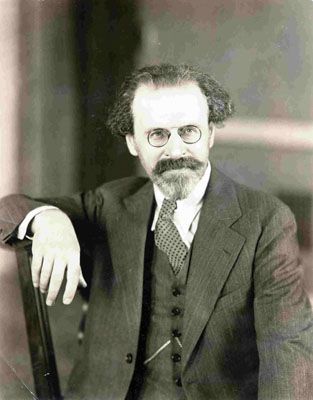
Sigismund Stojowski: Serenade Op 8 no3 in the key of A flat
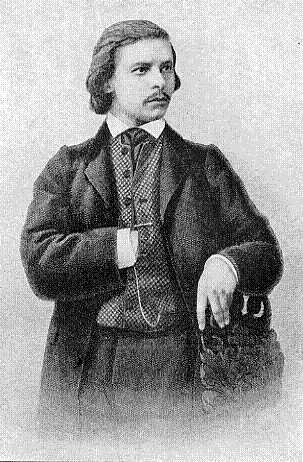
Karl Tausig: 'L'Esperance' Nocturne Varie Op 3. A very pretty piece in A flat marked Andante Sostenuto. As the piece progresses the texture and mood change to be busier. A nice rare piece to play. Tausig was considered by Liszt to be one of his more gifted pupils. He was known for his virtuosity and for practising pianissimo the same works just after performaing them in a concert. He died fairly young from contracting an illness.
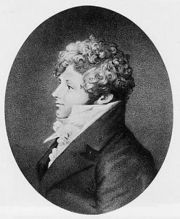
Daniel Steibelt: 25 Etudes. These are not too difficult but very tuneful and useful, especially the trill study number 25a and b. They remind me of Hummel's op 125 and are similar in difficulty to Moscheles' op 70 Etudes.
Ignaz Moscheles Op 70 Etudes 'for perfection'. It is nice to play these again. Book 2 etudes are easier than some of book 1, but they are all quite tuneful. It was the Steibelt etudes which prompted me to play these ones again this weekend. I really love Romantic piano etudes, so much fun!
Adolf von Henselt: Op 1 variations on Donizetti's opera 'Der Liebestrank'in E minor. There is an introduction followed by the theme, about 4 variations, a March and a Finale in E major.
Adolf von Henselt: Op 2 Etudes. I love no 1 in D minor, especially the lefthand arpeggios.
Adolf von Henselt: Preambules. These are a set of very short preludes in 24 keys, mostly only 2 lines or so long, but with some very nice melodic lines.
Hummel: Piano concerto in B minor op 89 (first movement). The solo exposition is a surprising contrast especially in dynamic. The opening orchestral introduction has such a fortissimo climax and the solist enters with a very simple arpeggio in the left hand, pianissimo. The second theme/ group/ subject is in D major and the development goes though a number of surprising modulations. The melodic writing is very simple and is not as rich as Chopin or Liszt; much of the passage work is very similar to his etudes op 125. Overall, the work reminds me of Mozart concertos, though as a whole, does not seem to be as developed symphonically as say for example, Mozart's K491 in C minor.
Anton Rubinstein: Yankee Doodle Variations. All 38 pages long!!!! I started to get a little bored and annoyed by the theme! haha.
Bach/Busoni: Chorale Preludes "Nun komm der Heiden Heiland" and "Ich rufe zu dir, Herr Jesu Christ" and "Wacht auf, ruft uns die Stimme". These are three of my favourite Busoni transcriptions. I love opening recitals with them. I think a singing tone and clear voice leading are so important together with deep sound. Some really tender moments. Some heathens think they are boring!!
August 2007
Still working on Bach Partita. I have learnt 4 dances. A few more to go. Working on the voice leading and implied polyphony.
Chopin Ballade no 2. This is now learnt, just memorizing and working on interpretation
Balakirev: Transcription for piano of Glinka's L'Alouette/ The Sky Lark. I love this work which is in my favourite key of B flat minor.
Balakirev: Nocturne in B minor. The chorale reminds me of Chopin's Nocturne op 48 no 1 in C minor but the spread chords remind me of the the Chorale from Cesar Frank's Prelude, Chorale and Fugue which is another of my favourite pieces.
Liapunov: Op 3 Reverie du soir. I love this so much, reminds me of a cross between Chopin and Balakirev.
Liapunov: op 11 Lesginka Etude Transcendante. I had not played this for ages!!!!! I've forgotten it. Haha!
Liszt: Sposalizio. Again it's been ages, but a pleasure to play.
Stephen Heller: Sonata op 9. This is a rare find. Only played the first movement. I suspect the later sonatas are more developed in style and melody. I have amassed much of his music, so much to read through, it will take a long long time - but how exciting!!!!!
Rachmaninov: Second concerto, second movement. Say no more and just hear it in your head!
September 2007
Henselt: Piano concerto in F minor first movement. Lovely! Some of the passages are tricky though and need BIG hands like Rachmaninoff's music.
Ravel: Minuet l'antique. I really love this piece. I first heard the orchestral version which I find fab. I always study the piano version of Ravel with his orchestral versions of the same work and try to make the piano sound like the version instruments in conception and thought. I love his use of cor anglais, what a great sound. I also played through some of le Jardin Ferique, Mother Goose and Le Tombeau de Couperin
Mozart: Concerto no 20 K466. I love this one so much!!!!
Mozart: Concerto in A major K488. I love this one too, such a warm sunny first movement, anguished F sharp minor second Movement, and then jolly happy A major again in the Third Movement!
Ignaz Brull: Phantasiestuck op 47 no 2. Brull lived between 1846 to 1907 and was a Moravian born pianist composer who was based in Vienna. This is a dramatic piece in C minor and in Ternary form. The mood is there but the themes do not develop. You can find out more about Brull's music from http://www.ignazbrull.com
Scriabin: Etude in D Sharp Minor op 8 no 12. I definitely prefer this to the Brull!!!! Something to get your teeth into and let your hair down, simply fab :-)
Smetana: Concert Etude in C. The homophony alternating between the hands reminds me of some of Moszkowski's etudes.
Smetana: Concert Etude op 17: 'On the Seashore'. I think this is great for so programmatic. I really feel the waves of the sea and the wind. I prefer this to the C major concert etude! Shame it was not written in A flat minor instead of G Sharp minor, but it does change enharmonically to A flat major at the end.
October 2007
Conrad Ansorge: Remembrance (Dream Pictures No 1). Ansorge, a german pianist and composer, was a Liszt pupil at Weimar.
Conrad Ansorge: Ballade. This opens with a declamatory statement and has many changes in tempo and mood. It is a stormy work in mood. many of the chromatic passages remind me of the left hand menacing and serious sounding chromatic scales in Liszt's second Ballade in B minor
Balakirev: Transcription for piano of Glinka's L'Alouette: Simply scrummy!
Liszt: Second Legende.Haven't played this is ages, love it everytime.
Bach: Partita no 2 in c minor. Haven't finished learning all of the dances yet, 2 more to go.
Ravel: Minuet l'Antique. Such a majestic piece which such gorgeous chords and sounds. A favourite.
Chopin Piano Concerto no 1 in E minor. (First and second movements). This is one of my all time favourite works. Melody melody melody!!!!
Rachmaninov piano concerto no 2 (second movement). I'm rusty at this one. It's been ages since i last played it!
Bortkiewicz: Op 3 no 1. Capriccio in F sharp minor. This is an early work with some of the writing reminding me of Brahms' shorter pieces like the intermezzos, i.e. the arpeggiated left hand and octave/ chords in the right in contrary motion. His harmonies are distinctive and you know it is his music you are playing but I do feel some influence of Rachmaninov.It is such a shame that his composer is not so well known, so go out and find his music and discover it for yourself and play it in your concerts!!!!
Chopin Ballade no 2. When you leave something for a week of two it really shows when you play again! I had forgotten how to play the last two pages, how silly! Nevermind! Lots of slow practise did the trick and it back to normal! Just goes to show, if you have lots on your mind, how it can affect your playing!
Great excitement! I have finally printed and put into folders all the Sigsimund Thalberg and Adolf von Henselt music I ordered from Rarepianomusic.com!!! Can't wait to play through it all. I have also to do the same with my Bortkiewicz music - so much to do, so little time to do it. I spent the weekend just sorting out my music library - i need another bookcase.
Ferdinand Hiller: Etudes. Completely forgotten works! Hiller studied with Hummel and was associated with Beethoven. He was a pianist,composer and conductor. I have only started the first few etudes, more to go through!
November 2007
Bach: Partita no 2 in C minor: Sarabande & Rondeaux
Balakirev: Lark. I love the key of B flat minor
Chopin Ballade no 2. Have you read Mikiewicz's poeme? The opening can certainly be viewed musically as an enchanted lake and the more violent episodes/ contrasting sections can be attacks by the Russians. I'm not sure about which bit are the Russian soldiers picking the lillies/ 'czars'. The ending could certainly be the whole city disappearing and being replaced by the lake
Ravel: Sonatina: second movement. Such lovely harmonies. Interesing that this has been set for AB's grade 8. Choosing which pieces are suitable for students at the moment - all depends on their personality and verve for feel of the music
Ferinand Hiller: Etudes (selection). It's fun reading from old printed editions, makes you realise how lucky we are with modern print!
December 2007
Bach: Partita no 2 in C minor: Opening movement and Allemende
Balakirev: Lark/ l'aloutte. yummy, yummy, yummy!
Chopin Ballade no 2. Unleash the power!
Burgmuller: Souvenir de Bellini. I keep thinking about Maria Callas.
January 2008
Mozart: sonata in F major K332. This is one of my very favourite works. I fist studied it with Dr Shalinee Jayatilaka, then with Lora Dimitrova and Chris Elton. I feel it is so operatic and orchestral. I always hear in my head hunting horns, passages for oboe, fltues, bassoon etc. This music is full of detail to which attention must be paid.
Bach: Partita No.2: Courrente and Capricio
Durand: 6 Waltzes. These are nice. The reason for playing them is that a student of mine has chosen to do a recital of piano music by Parisian pianist composers for his A-level course. One of the Durand waltzes will be nice in a programme of works by Liszt, Chopin and Burgmuller
Stavenhagen: Piano Concerto op 4. no 1. I am reading a book by Fleischman (which I picked up at Chappells recently), a student of Stavenhagen and Kellerman about the Liszt tradition of playing. Quite enlightening on 19th century performance practice and Liszt's playing of Chopin and his own music
Chopin: Nocturne in C minor op 48/1. An old friend.
Chopin: Ballade no 2
Liszt: Legende no 2
More later.
February 2008
Chopin: Ballade no 1. I love this and studied it with Lora Dimitrova
Balakirev: The Lark
Liszt: Legende no 2
Czerny: Schools of Velocity and virtuosity Op 299 and Op 740: I love these, haven't played them in ages. Good to go over technique to keep in shape. I remember studying these when I was younger, lots of hard work at the time.
March 2008
Clementi: Gradus ad Parnassum. Back to these old friends. These are so tuneful and exciting! I like to alternate them with Czerny op 740. Nice was to start practise after doing your scales!!!
Moszkowski: Etudes per Aspera op 72. Back to these old friends. I really like them, especially the D minor octaves study, 2 in C major, G minor, E major and A flat
Jadassohn: Transcription of Bach's St Matthew Passion. A really lovely transcription of solo piano. I have always loved the opening movements of both the St Matthew and St John Passions.
Arthur de Greef: Etudes Nouvelles no 1. some strange harmonies here
Theodore Oesten: Transcription of Franz Abt's Sleep Well, Thou Sweet Angel op 277/ 2. I do like Oesten's music. I only know of a few of his works which I have played and taught, namely, the Doll's dream
Henri Litolff: Spinning song/ Spinnlied op 81
Henri Litolff: Concerto Symphonic no 3 'National Hollandais' in E flat. First movement
Charles Chaulieu: Au clair de la lune variations op 10. A delightful set of variations. Not particularly difficult, but great fun.
Edgar A. Brazelton: The Falcon etude. This is an etude concerning chords alternating between the hands whilst the left hand sustains a base line. Not very difficult or very tuneful
Edgar A. Brazelton: Alla tarantella. Most tarantellas I have played are in minor keys. This one is in D major. I didn't feel as if it had the madness of a tarantella; the texture is not particularly busy but the flourish of octaves was exciting to play. I prefer the tarantellas of Macdowell, Moszkowski, Paul Beaumont (Sydney Smith) and Burgmuller
William Alwyn: Sonata. I really like this. It is not difficult music, but I like the harmonies, some of it reminds me of chinese music.
A weekend of russian music:
Balakirev: Sonata in B flat minor. My goodness, I haven't played this in ages. I so like the first, third and fourth movements
Balakirev: Nocturne no 2 in B minor I really love this. It has similarities to Chopin Nocturne op 48 no 1 in C minor by having the chorale in the middle, but the rolling chords remind me more of the chorale in Cesar Franck's Prelude, Chorale & Fugue (which is a work I absolutely love)
Balakirev: Reverie. I so enjoy playing this.
Liapunov: Reverie du soir, there are moments which remind me of Balakirev's transcription of Glinka's 'skylark'
April 2008
Ferdinand Hiller: La Danse des Fantomes op 90 in F sharp minor. This work seems more like an etude since the same technique and rhythm is employed throughout the entire piece, save for a line or so at the end. Some of the disonant harmonies are spooky!
Sigismund Stojowski: Pensees Fugitives
Serger Bortkiewicz: Op 65 4 pieces. I really like his music! It is a shame that most of his music is not played more often
Stephen Heller: Sonatina no 1 op 146 in C. This is interesting to play and has more movements than the usual 3 that you expect: i. Intoduction and allegro non troppo; ii. Andantino; iii. Scherzo and trio (and back to the Schezo again); iv. Minuetto; v. Finale allgro con spirito. It is quite long for a sonatina!
Stephen Heller: Sonatina no 3 in D minor op 149. I prefer this work as it is in one of my favourite keys. I also like the feel and nature of the writing. The first movement is unusual as it is a slow moevement (lentement) followed by an Intermezzo (allegretto quasi andante), and ends with a Finale allegro energico. As a work, i do prefer it over the first sonatina.
Aram Khatchaturian: Sonatina. I simply love this exciting work with all it's rhythmic energy and excitement. I usually give the first movement to my students to learn. This month, i am digging out all old repertoire to play. The slow movement is very straight forward and it is interpretation that is the main thing to work at. The third movement is even more exciting that the first! Wonderful sounds. I Khatchaturian's music.
Abram Chasins. A shanghai Tragedy from 3 Chinese Pieces. I really enjoyed the harmonies. I wasn't sure of what the tragedy was about. I have yet to look at the other two pieces, Flirtation in a Chinese garden and Ruchour in Hong KOng. Chasins was an american pianist and composer who studied with Ernest Hutcheson, Josef Hofmann, Goldmark and Tovey. I heard that Josef Lhevinne and Hofmann used to include these pieces in their concert repertoire.
Josef Ceremuga. Toccata. This is interesting toccata by the late Czech composer. It has typical notes alternating between the hands
Robert Casadesus: Premiere Sonata op 14 (First movement). I quite enjoyed playing this work, especially the tune at the Tranquillo sections.
Emil von Sauer: Concert etude no 5 'Pres du ruisseau/ Am Bache'. I wonder if there are other pieces available by von Sauer. I will check on the Henseltlibary.org. If anyone knows where I can find more of his music, do let me know. I am trying to get the music of Liszt pupils. So far I have the Stavenhagen concerto, a few pieces by Da Motta, one von Sauer concerto and a few other pieces, quite a bit of Sgambati's music, concert etudes of Mortiz Rosenthal, etudes of De Greef, a few works by Conrad Ansorge and one of two pieces by Sophie Menter. I also have lots of Tausig and Eugen D'Albert. Looking for music of Josef Weiss, Frederic Lamond, Arthur Friedheim and D'Albert's first piano concerto.
Emil von Sauer: Concert etude no 30 'Dialogo'/ Impromptu
Emil von Sauer: Sonata no 2in E flat. First movement
Sergei Liapunov: Etude Transcendente op 11 no 10, 'Lesginka'. This has to be my favourite of the set. It's very toccata like, not in the fugal sense, but the technique of chords/ notes alternating between the hands and the groups of three. The style always reminds me of Balakirev's 'Islamey', and Liapunov did entitle the dance as in the style of Balakirev, who was his teacher.
Beethoven: Concerto no 1 in C op 15. This is one of my all time favourites which I really love playing. Again, it's been ages since i met with this old friend. I delight in all three movements
Beethoven: Sonata in C op 2 no 3. Again, another old friend. The first movement is so much fun!
Henri Bertini (jeune): Grande Fantasie Etude OP 46 in F minor. This was quite a nice piece to play. I really liked the melody. I quite like the key of F minor. The music has a number of contrasting sections and tempo changes, ending the work in the tonic major.
Chopin Nocturne op 48/1. One of my students asked me to play this to them. It's been a while since i last played it, but I really love this nocturne
Rachmaninoff: Elegy. E flat minor, what a beautiful key. I haven't played this for ages again!Actually, I've just noted above, that i played in last in January this year! Silly me. OK, so I haven't played it since January!
Brindley Richards: C'est une fille charmante que j'aime op 5. This is a nice number. I had previously only played Richards's Warblings at eve. Thanks to the Henselt Library.org, more of his music is available to play! :-)
Edouard Dorn: Fantasia 'The Bohemian Girl/ La Zingara op 39 no 46. I don't know much about Edoard Dorn, but I do know music of Alexander Dorn. This is a jolly piece of Salon music, which is a good introduction ot the genre as it is not difficult but sounds impressive
VB Aubert: Nocturne - 'The Harp at Midnight'. This is a sweet and gentle little nocturne in A flat. A real treat. I don't know anything about the composer though or about what else he wrote. Can anyone tell me?
May 2008
Medtner: Op 38 no 1. Sonata-Reminiscenza
Medtner: Op 38 no 3. Danza Festiva
Medtner: Op 38 no 4. Canzona Fluviala
Medtner: op 38 no 5. Danza Rustica
Medtner: op 38 no 6. Canzona Serenata
JL Dussek: Rondo 'The Countess of Sutherland'
JL Dussek: Scotch Song with variations 'Anna'
JL Dussek: Sonata op 9 no 1 in B flat
Liszt: Spozolizio. An old friend
Liszt: Transcendental Etude no 2 in A minor
Chopin: Etude op 25 no 1 'Aeolian harp' in A flat
Chopin: Etude op 10 no 1 in C major.
Rachmaninov: Moment Musicaux no 4 in E minor
Chopin Ballades Nos 1 and 2
Balakirev: Nocturne no 2 in B minor
Franck: Prelude, Chorale and Fugue. Happy memories. I studied this work in my first lessons with Lora Dimitrova. Simply love the anguish in the Prelude.
JUNE 2008
Moscheles: Rondo in F
Beethoven: Rondo in C
An Evening at John and Erica Lindop's home, food and music. I played a selection of Mozart sonatas, Bach and Handel dances, Chopin nocturnes, Elgar Nimrod, Beethoven Moonlight and Tempest sonatas and Schubert Impromptu in G flat major
Chopin Concerto no 1 in E minor
Beethoven Concerto no 1 in C
Beethoven: Sonata in C op 2/3
Beethoven: Sonata in d minor 'tempest'
Mozart: Sonatas in B flat, F major, D major 'Durnitz', E flat and the Fantasia in C minor
This month has been quieter as I have been more busy teaching and with work, so less piano playing :-(
Chopin: Prelude in D flat 'Raindrop'
Chopin: Andante con expressione/ Nocturne in C sharp minor. This is one of my favourite nocturnes
Schubert: Impromptus in C minor, E flat and G flat - beautiful, beautiful, beautiful!
An Evening at Eve and Martin Garwood's home, dinner and music. I played a selection of Chopin nocturnes, Elgar Nimrod, Mozart Fantasie in C minor K475, Beethoven Moonlight sonata.
JULY 2008
Beryl Rubinstein: Etude no 2 in C major: 'Whirligig'. This was quite fun to play. I think it was written in 1929. Beryl (a man) taught at the cleveland Institute of music, Ohio, USA. He was born in Athens, Georgia USA to Jewish parents. I understand that he was a prodigy who toured the USA and studied in Germany. He is remembered for his Gershwin transcriptions.
Beryl Rubinstein: Concert Transcrption: Summer Time from Porgy & Bess. I thought that this was interesting to play.
Beethoven: Rondo in C
Liszt: La Campanella - this is difficult! Such wide leaps in the right hand.
Liszt: Waldesrauschen. I like this so much!
Liszt: Romance in E minor. A very rare work from a Liszt Society publication. It has some unexpected/ disappointing harmonies sometimes, not what you expect.
Chopin: Various nocturnes
John Field: Various nocturnes
Pamela Wedgewood: various pieces. I really like her writing, style and mood. Very good for students to learn and enjoy!
Balakiriev: the lark and nocturne in B minor
August 2008
Bach: Sinfonia, Sarabande, Rondeaux and Capriccio from Partita no 2 in C minor. I have always liked this together with the partita in B flat and D major.
Liszt: Legende no 2 - sea sick yet? haha. So many dramatic waves and prayers - I simply love it.
Chopin ballade no 2 - the opening was one of Chopin's favourite things to play, I want to have a look at Liszt's second ballade in B minor as well. Liszt's first ballade is not so popular as no 2, same with the Legendes, the second is more popular.
Chopin Sonata no 2 in B flat minor - first movement
Beethoven: 'Pathetique' sonata - drama, drama, drama
Ravel: Le Tombeau de Couperin: Menuet - so beautiful - can you hear the oboes and cor anglais???? The piano is an orchestra!!!!!
Ravel: Prelude
Ravel: Pavane pour une infante defunte - love this so much
Ravel: Minuet l'antique, I really enjoy those lefthand octaves and the lovely scrummy suspensions in the music
Ravel: Ma mere l'oye - movements from Mother goose suite.
Chopin: Waltz no 14 in E minor. I fondly remember learning this waltz with Lora Dimitrova and playing to Chris Elton in a lesson. It has fond memroies for me as I recall playing it at competition.
Chopin: Prelude in C minor. This is a good work for listening to harmonies and balance of the chord in each hand and overall, in addition to the voice leading and playing chords with different dynamics.
Chopin: Fantasie Impromptu.
Mozart: Sonata in F major K332. first and second movements
Mozart: Sonata in C minor K457 first movement
Bach: Allemande, Corrente from Partita no 2 in C minor
Liszt op 1 Etudes en douze exercises. These are perfect for student's first dabbles with Liszt
Moszkowski: Etudes op 72
Ravel: Concerto second movement
Chopin: Berceuse. This work is simply delicious and has been set for ABRSM diploma
Cesar Franck: Ecologue. I love this work. When I first heard the talented pianist Ashley Wass play it, I knew I had to learn it. Once you get the hang of the changes of hand position ands voice leading the work flows. It has such a serene calmness followed by the exciting storm and back to the calm countryside again. It's quite a long work though but very beautiful!
This month is a lot of old repertoire for me as I have a number of students deciding what pieces to learn for their diploma exams.
September 2008
Ravel/ Samazeuilh: Adagio from Ravel's piano concerto. This is an arrangement of the second movement of Ravel's piano concerto by Gustave Samazreuilh. This is not a simplified version, but a proper arrangement incorporating the orchestral accompaniment. There are subtle changes in the solo piano part, such as no trill on F sharp in the right hand of the solo part, which instead plays the orchestral line, but the left hand adds the F sharp to its chords which then resolves to the note G in the right hand. Sometimes the orchestral part is negated while the solo part is simply reproduced, and sometimes a combination of soloist's right hand and orchestral accompaniment in the lefthand. It is quite a nice arrangement. I understand that Samazeuilh made quite a few arrangements of French music, having studied with Chausson, Dukas and d'Indy
If you would like to know more about the music I am playing please e-mail me for a chat.
October 2008
Not much practise on piano this month, spending a wee bit more time on the violin for a change!
A selection of old repertoire of Bach, Chopin, Liszt and Balakirev
Mozart concerto K175
November 2008
This month has been mad busy. I haven't really had bags of time to practise :-( I have been mainly preparing students for competition and exams.I think as last month and this month has been less productive than usual, I will do a general revision of technique and plenty of scales in late November - early december to get back into shape.
Mozart Fantasie and Fugue in C major
A selection of sonatas by Cimarosa. I love these binary form sonatas. Quite a lot of detail in them.
Mozart Concerto in D K175 second movement. I accompanied my student Kyiah Rose Marks in the concerto class of the Southend on Sea Musical Festival.
December 2008
I have been practising violin more this month - makes a change! As I have played much recently, it's back to technique to shape up!
Czerny: Op740 Studies
Clementi: Gradus Ad Parnassum
Bach: Toccata in C minor and D major. I love these both and studied them with Lora Dimitrova.
Ravel/ Samazeuilh: Adagio from Ravel's piano concerto.
January 2009
Not much piano playing I'm afraid, been too busy with sorting out the house and teaching, but more violin playing this month :-(
Bach/Busoni: Chorale Prelude in F minor 'Ich rufe zu dir, Herr Jesu Christ'. This is one of my favourites.
February 2009
Scarlatti: Sonatas L1,L2 in C major
Bach: Toccatas in D major and C minor. I love them both, and remember studying them with Lora Dimitrova. I recall Lora telling me she won a prize at International Competition with C minor Toccata
Beethoven: Sonatas in D, E and C minor
Mozart: Sonatas F, B flat and C minor
Thomas Arne: Sonata in A major - an old favourite from when I was little!
March 2009
Chopin: A selection of op 10 and op 25 etudes
Chopin: A selection of Preludes
Balakirev: A selection of smaller pieces
April 2009
I have been doing far more violin playing for a change! So por piano has been a little neglected, but I'm still doing lots of demonstration for students in lessons.
Robert Schumann - piano concerto in A minor, first movement
Rachmaninov: Concerto no 2, first movement
Mendelssohn: Sonata in F sharp minor
Mendelssohn: A selection from the 7 characteristic pieces
May 2009
After watching and listening to Glenn Gould, Angela Hewitt, Martha Argerich and Claudio Arrau play Bach, I have been inspired again playing lots of Bach preludes, inventions and dances from the suites and partitas.
Bach: Toccata in G minor
Bach: a selection of 2 part inventions
Bach: Concerto no 1 in D minor first movement
Haydn: Sonata in A major
Liapunov: Transcendental Etude Lesginka from op 11. Oh how I love this one - so exciting!!!!
Chopin: A selection fo nocturnes and preludes - I have to play a little Chopin and Bach everyday.
Not much work this month as I've been away on holiday.
June 2009
Chopin: ballade no 2
Bach: Italian concerto. I love this, especially the 3rd movement.
Bach: Partita no 1 and No 2. These are my favourite partitas, although I do like no 6 in e minor as well
Liszt: Sposolizio: oh it's been ages since i played this. I love it!
Ravel: concerto, second movement
Rachmaninov: Concerto no 2. First and second movements
Mozart: Sonata in F K332 complete. This is one of my favourite Mozart sonatas and one of the first works I studied Lora Dimitrova and lessons with Chris Elton.
Balakirev: a selection of short pieces.
July 2009
Schumann Concerto in A minor
Alexis de Castillon concerto. This is an unknown work. Not too difficult.
August 2009
I'm a rusty old bucket, not much practise of late, especially in July, so back to technique for a while.
Czerny: A selection of etudes from op 740
Clementi: A selection of etudes from Gradus Ad Parnassum
Mozskowski: A selection of etudes from op 72 'per Aspera'. These 15 etudes are great! Learnt them a long time ago. Favourites being the D minor, G minor, 2 C majors, G major and E major
Chopin op 25: A selection of etudes
Clara Schumann: Scherzo in C minor
Robert Schumann: A selection of the etude variations from the Symphonic Etudes
Chopin: ballade no 1 in G minor
Balakirev: Sonata in B flat minor (the second sonata, the first sonata is also in B flat minor, but is not as good as the second!)
Chopin: Ballade No 2 in A minor/ F major. Love this dearly.
Mana Zucca: Dixie Fugato Humoresque op 21. Oh this is so much fun and a cheeky little piece to play! I first heard it on one of my Shura Cherkassy LPs.
Liszt: Transcendental etude no 2
Liszt: Second Legende
Liapunov: Etude transcendental 'Lesginka'
September 2009
Chopin: A selection of etudes from op 25
October 2009
No so productive this month, away on hols with no piano!
November 2009
Not a lot happening in my own playing :-( Busy preparing students for ABRSM exams and the Southend on Sea Musical Festival for violin and piano classes. Mainly the two C minor Sonatas by Mozart and Beethoven, Cimarosa sonata in D minor, Ravel Pavane for sleeping beauty and the Prelude, Liszt Consolation and Chopin Nocturnes
playing through grade 8 repertoire with students for their exams.
playing and Selecting DipABRSM pieces with students
December 2009
Back to Liszt Technical execises, Hanon, Czerny and Moszkowski etudes
Bach-Busoni: a selection of chorale preludes and transcriptions
Two old favourites: Mendelssohn concertos no 1 in G minor and no 2 in D minor
Liszt:Waldesrauchen concert etude no 1
Liszt: a selection form the douze exercies en etudes
playing and Selecting DipABRSM pieces with students, mainly the Brahms Rhapodies and Schubert Impromptus and sonatas
January 2010
A diet of Bach is good for the soul, especially first thing in the morning!
Bach: concerto no 1 in D minor
Bach: partita nos 1 and 2
Italian concerto
Beethoven: Concerto no 1 in C: An old favourtie of mine and my first Beethoven concerto when learning.
February 2010
Cimarosa-Bach Concerto in D minor transcription of the oboe concerto for keyboard
Christian Sinding: Sonata in B minor. This is an interesting lesser known work in 3 movements. The pianist language is certainly of the big Romantic sonata with melody on top and big arpeggios ascending from the bass. The slow movement reminds me of the Chorale from Prelude, Chorale and Fugue by Cesar Franck, big octaves and chords. The last movement is a whizz. The writing is very similar to his suites which i obtained from Elibron
Beethoven: Concerto no 4 in G - the slow movement is short but SO SO special............
March 2010
Beethoven: Concerto no 5 in E Flat ' Emperor'. Haven't looked at this in ages, felt like playing the last movement one Sunday afternoon!
Bach/ Busoni: Chorale Prelude 'Ich rufe dir Herr Jesu Christ'. One of my favourites to play and I love Liapatti's recording of it!
Chopin: Concerto no 1in E minor. Another of my very favourites - scrummy!
April 2010
Mozart: Concerto in C KV467. This is one of my favourite concertos that I studied with Lora Dimitrova when i was little. A real old friend to play
Mozart: Concerto in C KV415. This is another favourite, one I give to students to learn. Mozart said this with two other concertos he wrote contemporeously could be played 'a quatro' which I think is meant to mean with a string quartet accompanying at home - real domestic music making.
Mozart: Grand concerto in C KV503. This is certainly not domestic music making unlike KV415, huge grand gestures and topics in this and not so playful as KV415 and KV467 but more serious and slightly more darker in the first movement.
Chopin: Etudes op 10 - a selection
Chopin: Fantasie Impromptu
Chopin: Etudes op 25 - a selection
May 2010
Bach Prelude and Fugue in F minor, book 1
Dohnanyi: Postludium
Bach: Capriccio in C minor
Mendelssohn COncerto no 2 in D minoir, first movement
June 2010
Bach: Sarabande and Rondeaux in C minor
Rachmaninov: Elegy in E flat minor. An old favourite from mnay years ago. I first heard recording of Rachmaninov himself playing this delicious work and knew i had to play it. That was 18 years ago!!!
Rachmaninov: Concerto no 2 in C minor, second movement
July 2010
Czerny: A selection of etudes from Op 740
Chopin: A selection of etudes from Op 10 25 and the 3 written for Moscheles Methode des Methodes
Rachmaninov concerto no 3 first movement
August 2010
Chopin: A selection of Etudes from OP 10 and op 25
Rachmaninov: concerto no 3 first movement
Bach: Partitia no 2 in C minor
September 2010
Chopin: a selection of Etudes from op 10 and op 25
October 2010
Ravel Concerto second Movement
Moszowski: Etudes per Aspera op 72
November 2010
Balakirev/ Glinka: Lark
Balakirev: Sonata first movement
Balakirev: Reverie
December 2010
Not vast amounts of practice, so back to studies.
Czerny op 299 - a selection of studies
Clementi Gradus ad Parnassum - a selection fo studies. I do like these, they not just studies but musical works too but not as profound as the Chopin etudes
Mozskowski Etudes per Aspera op 72 - a selection
Czerny op 740
January 2011
Bach Bach Bach, I'm in the mood for Bach. Inspired by Glenn Gould, Tureck the High Priestess and Tatiana Nikoleyeva xxx
Bach: Italian Concerto. Simply adore this work. So good to play first thing in the morning, sets a happy motivated mood for the day! :-)
Bach: Toccata in D major BWV912
Bach: Toccata and Fugue in D minor (arranged by Carl Tausig)
Bach: Toccata and Fugue in D minor (arranged by Busoni)
Bach: Organ Prelude and Fugue in D major (arranged by Busoni)
February 2011
Liszt: Second Legende, revisitng this wonderful programmatic work
Clementi: Gradus ad parnassum - selection of studies
Czerny: Op 740 selection of studies
Beethoven: Sonata op 49 no 1 in G minor
March 2011
JS Bach: Preludes and Fugues from Book I: B flat, a flat, C sharp minor, E minor, F major, F minor, F sharp major
Beethoven: SOnata op 13 Pathetique
Scarlatti sonata in B minor
Bach: Toccata in D major BWV913
Mozart: Concerto kv467 in C major
Mozart: Concerto kv466 in D minor
Mozart: COncerto kv491 in C minor
Liszt: Sposalizio from the Second Year of Pilgrimage
Liszt: Second Legende of St Francis of Paula walking on the waves

Contact Jena! 
Last updated: 21 March 2011
Please use the Site Navigator menu to view other pages of this website, or alternatively press the 'Back' button on your web browser.
http://www.jenapang.com
COPYRIGHT 2006-2010: JENA PANG. ALL RIGHTS RESERVED.


















































